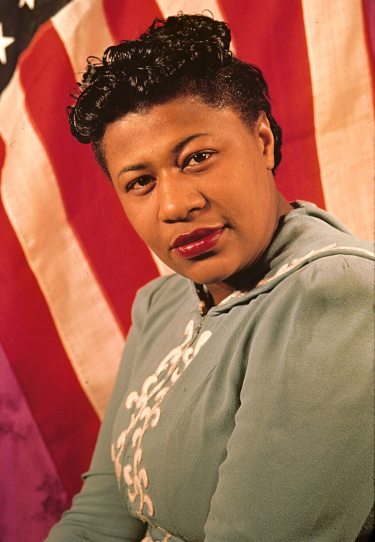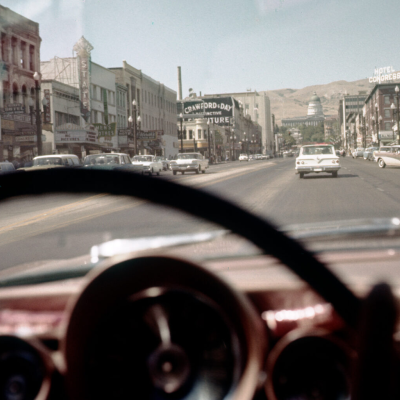_____
The passing of Aretha Franklin yesterday hits hard on a variety of levels. I am sure we all have wonderful Aretha memories. For me, she will always be remembered as the singer who opened my world to the sounds of soul and gospel music, and doing so during the height of the civil rights movement, when so much important work was being achieved — and cutting edge art was being created in response to it — virtually every day.
Aretha learned to sing at the New Bethel Baptist Church in Detroit, where her father, the Reverend C.L. Franklin, was minister — “the most famous African American preacher in America,” according to his biographer Nick Salvatore. Franklin’s style of “booming, soaring, flashy and intense” preaching “revolutionized the art, and his call for his fellow African Americans to proclaim both their faith and their rights helped usher in the civil rights movement.”
Rev. Franklin had an intense influence on daughter Aretha, “…[Aretha] always sang from her inners,” Ray Charles once said. “In many ways she’s got her father’s feeling and passion,’ [for when C.L.] — one of the last great preachers — delivers a sermon, he builds his case so beautifully you can’t help but see the light. Same when Aretha sings.”
I hosted a conversation about Rev. Franklin with Salvatore in 2005, when his book, Singing in a Strange Land: C. L. Franklin, the Black Church, and the Transformation of America. It is a timely and interesting history, an excerpt of which is posted below…You may enjoy reading the entire interview, which can be viewed by clicking here.
_____
JJM You wrote, “To know [Reverend C.L. Franklin] is to understand more fully the complex experiences central to modern American life.” Why?
NS Well, for a couple of reasons. One of the things that transformed twentieth century America was the large migration of African Americans out of the rural South, which began in 1915 and continued into the sixties. The South was transformed enormously as a consequence. At first, white southerners were furious about it because they were losing their labor force, but by World War II, technology had transformed the process of picking cotton and they were more than happy to help African Americans move on. This migration fundamentally transformed the cities of the North in terms of social composition, politics and the coming to maturity of a black political voice and a black political presence. In cities like Detroit, Cleveland, and Chicago, enormous tensions built around this transition that eventually broke out into violence over jobs and residences — especially throughout the thirties, forties and fifties, but also into the sixties. In 1966, after Martin Luther King marched in Cicero, Illinois for fair and open housing laws, he commented that the violent reaction he and the marchers experienced there was the worst he had ever seen, including Selma and Birmingham.
At the same time this is going on, a music of different tones emerges that fundamentally transforms the way Americans listen to music — Motown, Soul, R&B — so, culturally, a generational transformation takes place. When I use the term “transformation of America” or the phrase that you read from the book’s preface, some readers may assume that I am talking only about civil rights, but the underlying processes that ultimately led to civil rights are equally profound.
JJM The civil rights movement wouldn’t have happened if people didn’t have the courage to speak out. You argue that one of the significant ways they grew courageous enough to speak out was through singing — especially in church. The courage gained through this experience began showing up in popular music as well.
NS That’s right. When a group of people is living in an oppressive and dangerous culture, how do they speak out against it? If you are African American, how do you speak out against an oppressive culture like that found in the Mississippi Delta of 1947? It was very dangerous, and plenty of people were killed trying to do so. So when black people came to a city like Detroit from a state like Mississippi or Arkansas, while they discovered a freedom that didn’t exist for them in the Delta, they weren’t sure how to express themselves after being raised in a culture that threatened them for speaking out. In the process of finding one’s voice, church hymns and sermons became critically important. Through his sermons, C.L. Franklin encouraged people to find their voice.








































She was the soul of soul
She was the soul of soul
Photo: (L) Cecil, Erma, Rev. C.L. Franklin, Carolyn and Aretha (far right)